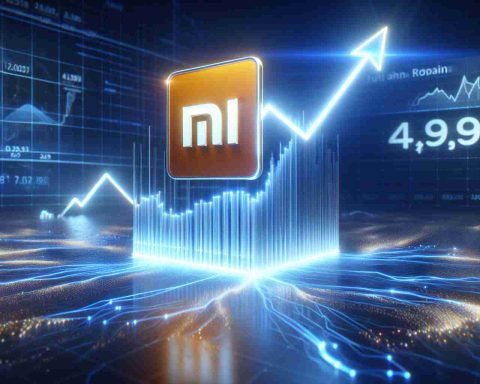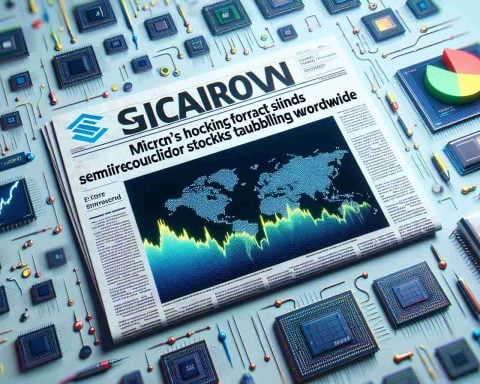- DeepSeek’s AI model is transforming China’s automotive sector, particularly through Great Wall Motor’s “Coffee Intelligence” system.
- Major telecom companies like China Mobile and China Telecom are integrating DeepSeek technology, enhancing AI capabilities across their networks.
- Investor interest has surged, leading to significant stock price increases in AI-associated industries such as semiconductors and cloud computing.
- Capitalonline Data Service and MeiG Smart Technology reported substantial stock increases after adopting DeepSeek technology, though long-term benefits are still uncertain.
- Leading tech firms including Tencent and Huawei are quickly adopting DeepSeek amidst a wave of enthusiasm tempered by cautious insights from industry leaders.
- The rise of DeepSeek signifies a major transformation in China’s tech landscape, particularly influencing the automotive and telecom fields.
A new wave of excitement is sweeping across China’s technological realm, and at the heart of it is DeepSeek’s revolutionary AI model. Renowned automaker Great Wall Motor, the first publicly listed car manufacturer in China, has integrated this cutting-edge technology into its innovative “Coffee Intelligence” connected vehicle system, signaling a bold leap into the future of automotive intelligence.
But Great Wall isn’t alone in this tech transformation. Major telecommunications giants, including China Mobile, China Unicom, and China Telecom, are all diving into the DeepSeek ecosystem to supercharge AI integration within their networks. This strategic move has not only sparked investor enthusiasm but has also catalyzed a remarkable surge in stock prices across AI-related sectors, particularly in semiconductors and cloud computing.
The excitement doesn’t end there. Capitalonline Data Service, a Beijing-based cloud provider, reported a staggering 49% jump in stock value after deploying DeepSeek’s technology, although it cautioned that the long-term business impact is still uncertain. Similarly, MeiG Smart Technology saw a striking 33% increase in its stock, despite admitting that new revenue from DeepSeek integration has yet to materialize.
As top tech companies like Tencent and Huawei rush to adopt DeepSeek, the vision of a AI-driven future is becoming increasingly tangible. Yet, amid the fervor, there are whispers of caution from industry leaders who emphasize that the path to realizing true business benefits remains unclear.
In this whirlwind of innovation, one message stands clear: the rise of DeepSeek represents a monumental shift in China’s technology landscape, promising to reshape the automotive and telecom industries for years to come. Keep an eye on this evolving story—it’s just getting started!
DeepSeek: The Next Big Thing in AI-Powered Technology
In a remarkable evolution of China’s technology scene, DeepSeek’s AI model is significantly reshaping industries beyond just automotive innovation. The integration of DeepSeek into systems like the “Coffee Intelligence” of Great Wall Motor exemplifies how AI integration is becoming critical in enhancing user experiences and operational efficiency across various sectors. This technology isn’t only limited to automotive applications; it’s about to revolutionize telecommunications, cloud computing, and more.
Features of DeepSeek’s AI Model
DeepSeek’s capabilities include:
– Advanced Machine Learning: Leveraging large datasets to improve predictive capabilities and user interactions.
– Real-Time Data Processing: Ability to process and analyze data swiftly to provide meaningful insights without delays.
– Seamless Integration: Compatible with existing systems to enhance rather than disrupt current workflows.
Pros and Cons of DeepSeek Integration
Pros:
– Enhanced user experience in connected vehicles.
– Increased operational efficiencies for telecom and automotive companies.
– Boosts investor confidence leading to rising stock prices.
Cons:
– High initial investment and integration costs.
– Ambiguity in quantifying long-term business benefits.
– Potential job displacement due to automation.
Use Cases of DeepSeek Technology
1. Smart Vehicles: Enhancing navigation and driving experiences with real-time analytics and updates.
2. Telecom Enhancements: Improving network performance and customer service through AI-driven insights.
3. Cloud Services: Offering enriched data processing capabilities to businesses utilizing cloud platforms.
Market Forecast and Trends
The adoption of DeepSeek signifies a broader trend where AI technologies are becoming integral not just in consumer electronics but also in industrial applications. According to analysts, the AI market is expected to grow exponentially, with estimates suggesting it could reach a value of $1 trillion by 2030, driven by advancements in machine learning and automation.
Important Questions Regarding DeepSeek
1. What challenges does DeepSeek face in market adoption?
– Despite its promise, DeepSeek faces skepticism regarding the tangible business benefits and true integration costs, which may hinder widespread adoption.
2. How are competitors responding to DeepSeek’s rise?
– Competitors are ramping up their own AI initiatives and investing heavily in R&D to keep pace, leading to a competitive environment that could spur rapid advancements.
3. What implications does DeepSeek have for privacy and security?
– With increased data collection and processing, concerns about the security of user information and potential breaches are mounting, necessitating robust security measures.
Insights on Future Developments
As China embraces this AI-driven framework, stakeholders across industries must strategize not only for technological integration but also in addressing ethical and security concerns to sustain growth and maintain public trust.
For further insights into the development of AI in China, visit CNBC.























